Looking back at last year, especially in the world of artificial intelligence, I’m fascinated by the strides in voice technology. Among the many advancements, OpenAI’s voice engine stood out as a game-changer. Let me take you through my journey exploring this AI marvel, shedding light on its capabilities, applications, and the potential it holds for the future.
The OpenAI voice engine is a prime example of how far AI-generated voice technology has come. Leveraging the power of GPT, OpenAI’s language model, this voice engine can convert text into natural-sounding speech. It’s more than just a text-to-speech tool; it’s a sophisticated AI model that mimics human voices with remarkable accuracy.
OpenAI has surely come a long way since ChatGPT. They’ve surely instrumental in making AI an everyday thing for everyday folks. Not just those in tech.
The Magic of Synthetic Voices
Imagine having a chatbot that not only understands text but also speaks to you in a human-like voice. That’s what OpenAI’s voice engine offers. Whether it's English, Spanish, or French, the AI can generate voices in multiple languages, making it a versatile tool for global communication. I experimented with creating synthetic voices, and the results were astonishingly close to the original speaker's voice.
One of the fascinating aspects is voice cloning technology. This allows the creation of synthetic voices that sound like specific individuals. It's both exciting and slightly eerie to hear an AI-generated voice that mimics your own. The technology's applications range from personalized voiceovers to real-time reading assistance, proving to be a valuable asset in many fields.
Practical Applications: From Podcasts to Reading Assistance
As a podcast enthusiast, I’ve always been intrigued by the potential of AI-generated voices in media production. OpenAI’s voice engine can produce high-quality audio samples, making it a perfect tool for podcast creators. The synthetic voices are so natural-sounding that it’s hard to distinguish them from human voices. This opens up new possibilities for content creation, enabling creators to produce podcasts more efficiently.
In education, AI-generated voices can enhance learning experiences. Imagine an interactive reading assistant that reads aloud to students with perfect intonation and clarity. Tools like Sora and Livox can benefit from this technology, providing better learning aids for students of all ages. The age of learning is indeed being transformed by generative AI.
Addressing Concerns: Deepfakes and Voice Authentication
With the rise of synthetic voices, concerns about deepfakes and voice authentication have become more prominent. The potential for AI-generated voices to be used in scams or unauthorized access to bank accounts is a real threat. To combat this, OpenAI and other companies are developing watermarking and other security measures to ensure the authenticity of AI-generated voices.
Industry Impact: Startups and Big Tech
Startups like ElevenLabs and HeyGen are leveraging AI tools to push the boundaries of text-to-speech technology. Meanwhile, tech giants like Tesla, Microsoft, and Meta are integrating AI-generated voices into their products, enhancing user experiences across various platforms. For instance, Microsoft's integration of AI-generated voices in their reading assistance tools is helping users with visual impairments or reading difficulties.
A Glimpse into the Future
The future of AI-generated voices looks promising. From enhancing customer service with more interactive chatbots to creating immersive experiences in virtual reality, the applications are limitless. Voice generator technology is also set to revolutionize the entertainment industry, providing realistic voiceovers for movies and video games.
However, with great power comes great responsibility. It’s crucial to establish clear usage policies to prevent misuse of this technology. As we embrace the benefits of AI-generated voices, we must also be vigilant about potential risks, ensuring that advancements serve the greater good.
Exploring OpenAI’s voice engine has been an enlightening experience. The blend of advanced AI and text-to-speech technology is paving the way for a new era of communication. Whether it’s enhancing podcasts, providing reading assistance, or combating deepfakes, the impact of AI-generated voices is undeniable. As we continue to innovate, let’s ensure that we use this powerful tool responsibly, harnessing its potential to create a better, more connected world.
The journey through the landscape of AI-generated voices is just beginning, and I can’t wait to see where it leads us next.
Speechify Voiceover
Cost: Free to try
Speechify is the #1 AI Voice Over Generator. Using Speechify Voice Over is a breeze. It takes only a few minutes and you’ll be turning any text into natural-sounding Voice Over audio.
- Type in the text you’d like to hear spoken
- Select a voice & listening speed
- Press “Generate. That’s it!
Choose from 100’s of voices, and a plethora of languages and then customize each voice to make it your own. Add emotion like whisper, right up to anger and screaming. Your stories or presentations, or any other project can come alive with rich, natural sounding features.
You can also clone your own voice and use it in your voice over text to speech.
Speechify Voice Over also comes loaded with royalty free images, video, and audio that are all free to use for your personal or commercial projects. Speechify Voice Over is clearly the best option for your voice overs - no matter your team size. You can try our AI voice today, for free!





